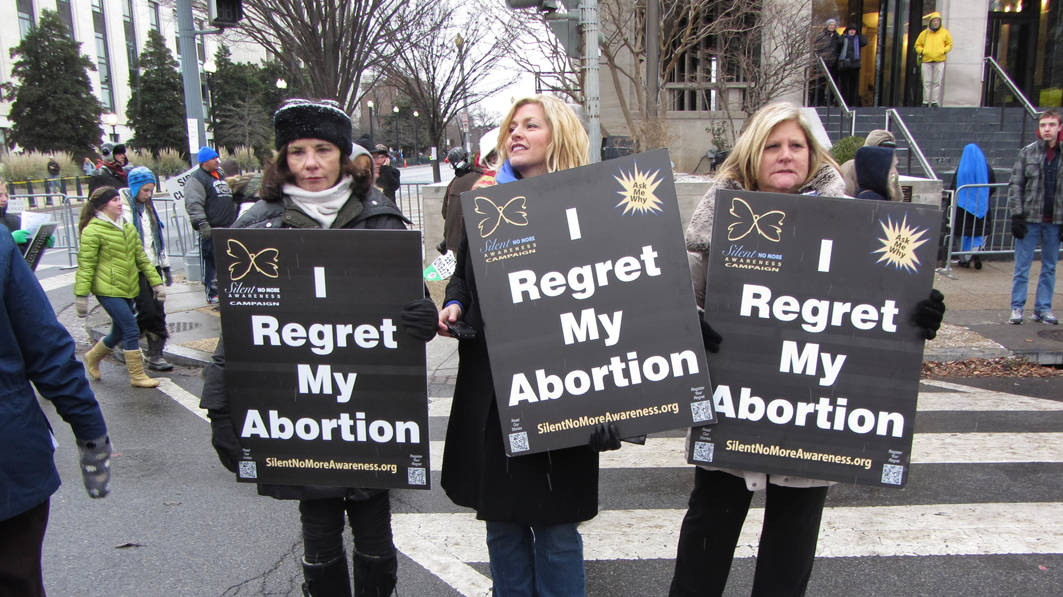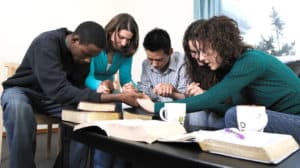![]() Listen to the broadcast Finding Healing and Hope After an Abortion.
Listen to the broadcast Finding Healing and Hope After an Abortion.
__________
Whenever abortion issues make national news, some people rejoice and others are angry, depending on the outcome. But those of us who have lost a child to abortion often have a different response altogether: Just the mere mention of the word can trigger all sorts of emotions.
Even when an abortion took place decades ago, the memories can suddenly feel like a fresh wound for the women and men who were involved. No matter how hard we’ve tried to stuff down and deny the associated emotions – the pain and confusion, the irreplaceable loss – current events have a way of bringing them to the surface, and the pot we’ve worked so hard to settle gets stirred … hard.
Though it was a woman who carried the child and actually experienced the procedure, men are also susceptible to the trauma of a past abortion. Perhaps they supported abortion rights at the time, or felt that there was no other option, but over the years they have come to grips with their role in ending the life of their child.
Maybe parents pressured or even demanded that the woman abort. Maybe the mother felt like she didn’t have a choice. Or maybe the mom aborted her baby in secret and didn’t give the father or any parents a say in the matter.
Each scenario can result in diverse emotions for those involved. Siblings of the lost child, for example, have a distinct variety of emotions to deal with. But no matter what specific role each participant played, the feelings of loss are deep and real. That’s why it often seems easier to hide them away and deny how much it hurts. Since virtually no one else talks about their abortion loss, who wants to be the abnormal one?
So the silence continues, and the triggering event that stirred the pot brings with it fresh confusion and doubt, along with new reasons to consider self-harm. Maybe a drinking binge. Maybe even thoughts of suicide.
A trigger can originate from any number of sources: the anniversary of the abortion or the child’s would-be birthday; the birth of a friend’s baby; a medical procedure; certain smells or sounds, such as a child’s cry; relationship troubles; intense movies or traumatic nightmares.
My Story
My first significant reaction occurred during my first intentional pregnancy. I was 22 and married, after having two abortions at ages 18 and 19. I knew nothing about fetal development at the time of my abortions, but when I began reading about my current baby’s growth in utero, I could no longer deny that my previous pregnancies were tiny live babies. And when I learned more vivid details about abortion procedures, I became suicidal.
Once again, as with my previous teenage pregnancies, I had nowhere to turn with my pain. (Yes, I was married, but I was so paralyzed by my fears and the shock of what I’d done that it never even crossed my mind to share this with my husband.)
I was a Christian who’d twice chosen abortion because I had no resources and no source of support. More specifically, I experienced nothing but shame and humiliation when I told a church counselor about my first pregnancy.
My abortions had at the time initiated a chain reaction of other self-deprecating behavior. And in some ways this new situation was just as painful. No one put out a sign offering help for people like me to sort through this kind of mess.
I felt completely alone. I had to figure it out myself, just me and God.
The Trauma is Real
A significant trigger, like the recent spate of new state-level abortion laws, can affect untold women and men across the nation. Most feel utterly alone, as I did, and don’t know where to go for help. Many churches never mention the word abortion in any scenario, much less discuss abortion trauma to its living victims.
According to the book Complications: Abortion’s Impact on Women, the aftermath of the procedure can lead to depression, anxiety, substance abuse and suicide. Post-abortion trauma also affects family formation, leading to a rise in single-parent families, the refusal of fathers to accept responsibility and the breakdown of relationships, including divorce. All of these scenarios lead to even more women and men left alone in their trauma.
So, where can someone like me go for help?



















